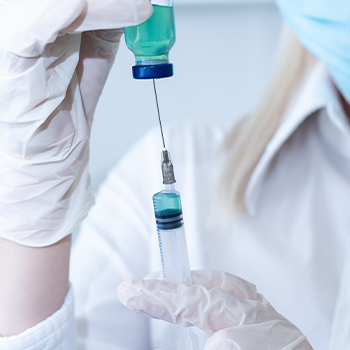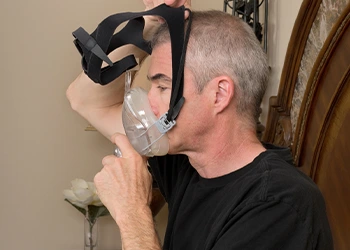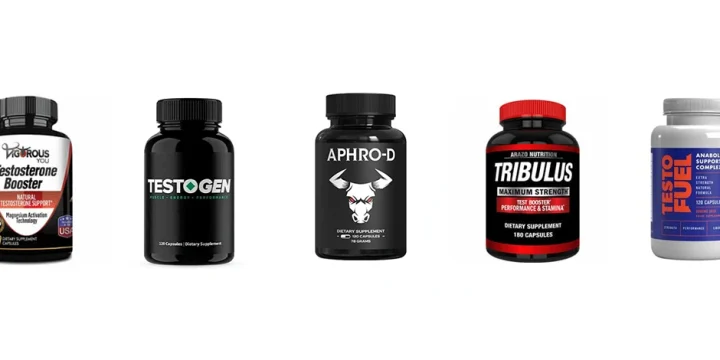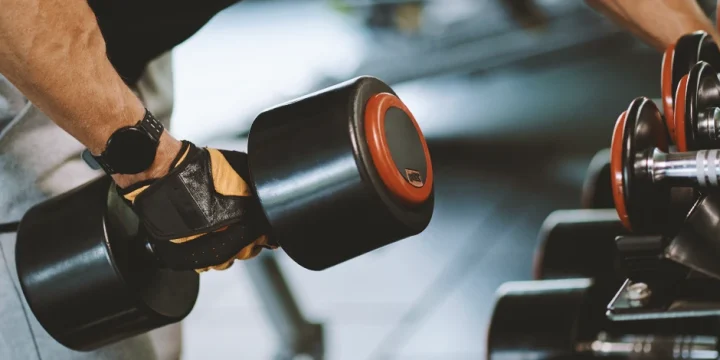Adult men with low testosterone levels report signs of chronic fatigue, decreased sexual desire, and weight gain, prompting them to undergo testosterone replacement therapy (TRT).
However, some of my fitness clients who used prescription testosterone gel and injections reported cardiovascular problems and worsening of their heart disease symptoms, leading me to conduct research and investigation.
This article will explain what testosterone replacement therapy is, why it is used, the risks it entails, and whether it is a safe solution to increase your testosterone level.
Let's begin.
Quick Summary
- Testosterone replacement therapy is a treatment structured to enhance sex life, muscle growth, and overall wellness by normalizing testosterone levels.
- People opt for testosterone therapy to address the following symptoms linked with low testosterone levels: mental disorders, low sexual drive, and increased body fat.
- According to a study published on the National Institutes of Health website, when testosterone deficiency is left untreated, free testosterone levels can get too low, leading to depression and severe conditions like low bone density and heart disease risk.
- Based on what I've seen with my clients, I'm convinced that properly managed testosterone therapy can be a key to restoring vitality and well-being in men suffering from low testosterone.
Importance of Testosterone Treatment

As a health and performance coach, I've observed that testosterone therapy significantly improves muscle growth, sex life, and overall well-being by normalizing low testosterone levels in my clients.
This treatment not only addresses physical symptoms but also positively impacts mood and emotional health, mitigating issues like depression and anxiety linked to low testosterone.
Testosterone medications, unlike anabolic steroids with high testosterone doses for quick muscle building, are designed to normalize hormone levels in men with low serum testosterone or male hypogonadism, as reported by Medicine Net [1].
Testosterone treatments are critical for addressing low T symptoms, which include:
- Low sex drive
- Increased body fat
- Loss of muscular strength
- Mental disorders
- Persistent exhaustion
Benefits Of Testosterone Therapy
Some of the benefits attached to testosterone therapy that I've seen include:
- Increased bone mineral density
- Increased lean muscle mass
- Improved insulin sensitivity
- Increased energy and sex drive
- Improved erectile function
- Improved cognitive functions such as memory and focus for aging men
Clinical Interventions in Aging Research indicates that testosterone therapy can enhance bone strength by promoting bone turnover and repair [4].
Additionally, testosterone treatments have been proven to significantly boost lean body mass and overall strength, with effects varying based on the type of testosterone used (injections, gels, or pills), as per studies published in the National Library of Medicine [5].
Recent findings published by the National Institutes of Health also show its effectiveness in improving mild erectile dysfunction, with increased social energy and sexual interest observed in men undergoing hormone therapy [6] [7].
Importantly, testosterone therapy has been linked to improved insulin sensitivity, diabetes and cardiovascular disease prevention, and reduced inflammation, as evidenced by lowered serum hsCRP levels, as reported by studies published in the National Library of Medicine [8].
Risks Of Testosterone Replacement Therapy

In my practice, I've seen some clients experience side effects like rash and irritation from testosterone therapy.
Furthermore, the FDA Drug Safety Communication mandated a warning on all testosterone products stating that there is evidence of increased dangers of heart attack and stroke following testosterone therapy prescription in men, as reported by WebMD and the U.S. Food and Drug Administration (FDA) [9] [10].
"Because of the marketing, men have been flooded with information about the potential benefit of fixing low testosterone, but not with the potential costs. Men should be much more mindful of the possible long-term complications."
- Dr. Carl Pallais, Endocrinologist, Assistant Professor of Medicine at Harvard Medical School
According to experts, the risks of long-term testosterone therapy have been shown to aggravate a few specific health conditions, including:
Benign Prostatic Hyperplasia (BPH)
Some studies have demonstrated that testosterone supplementation increases prostate size by 12 percent, but recent research by the Indian Journal of Urology indicates that increased prostate size is not associated with worsening BPH [11].
Furthermore, older men on testosterone therapy may have increased total prostate volume, but according to URO Today, this increase is comparable to prostatic hypertrophy that occurs with time regardless of T levels [12].
Prostate Cancer

Earlier studies have established that testosterone therapy increases men's risk of prostate cancer, prompting some physicians to exercise caution when prescribing testosterone to male patients at higher risk.
However, recent studies reveal that prostate cancer cells need testosterone to grow, which is why prostate cancer hormone therapy aimed at inhibiting testosterone production slows cancer growth, as reported by the Cancer Network and Mayo Clinic [13] [14].
Breast Cancer
According to the American Journal of Men's Health, the effects of long-term testosterone exposure have been shown to raise estrogen levels in men, increasing their risk of developing breast cancer [15].
However, while having a high T level is associated with an increased risk of breast cancer, research published in the National Institutes of Health also suggests it can sometimes act as a preventive factor against cancer progression [16] [17].
Red Blood Cells
Polycythemia, or an elevation in red blood cell mass as determined by increased hemoglobin and hematocrit levels in the laboratory, is the most commonly encountered negative effect of testosterone therapy, as per research by Sexual Medicine Reviews [18].
According to one study by the Journal of Gerontology, testosterone administration increases hemoglobin and hematocrit by 7 percent and 10 percent, respectively, by stimulating the hormone erythropoietin, which promotes red blood cell production [19].
Obstructive Sleep Apnea (OSA)

There is a potential impact of testosterone therapy on sleep patterns. Some men may experience changes in their sleep quality, which is an essential factor to monitor during treatment.
Dealing with clients who have obstructive sleep apnea has taught me the delicate balance needed when considering TRT. I had a client whose sleep apnea symptoms intensified after starting TRT, necessitating a careful reevaluation of his treatment plan
Research by the World Journal of Men's Health suggests that TRT may exacerbate sleep apnea through various physiological mechanisms, including changes in airway motor control and altered responses to low tissue oxygen levels [20].
Is Testosterone Therapy Safe And Effective In Increasing Testosterone Levels?
From my client's work, I've found testosterone therapy effective for properly diagnosed hypogonadism, with close monitoring essential.
Diet plays a key role in enhancing therapy outcomes, and a balanced diet can improve overall health alongside hormone treatment.
However, it's important to be aware of potential long-term risks like heart attacks, strokes, and certain cancers.
Ultimately, alongside medical advice, natural methods like a healthy diet, exercise, and testosterone-boosting supplements are advisable for improving testosterone levels.
References
- https://www.medicinenet.com/is_trt_a_steroid/article.htm
- https://www.ncbi.nlm.nih.gov/pmc/articles/PMC5376477/
- ttps://www.ncbi.nlm.nih.gov/pmc/articles/PMC5512682/
- https://www.ncbi.nlm.nih.gov/pmc/articles/PMC5036835/
- https://pubmed.ncbi.nlm.nih.gov/29542875/
- https://www.ncbi.nlm.nih.gov/pmc/articles/PMC5649360/
- https://www.ncbi.nlm.nih.gov/pmc/articles/PMC6765788/
- https://pubmed.ncbi.nlm.nih.gov/20092788/
- https://www.webmd.com/heart-disease/understanding-heart-disease-symptoms
- https://www.fda.gov/drugs/drug-safety-and-availability/fda-drug-safety-communication-fda-cautions-about-using-testosterone-products-low-testosterone-due
- https://www.ncbi.nlm.nih.gov/pmc/articles/PMC3897047/
- https://www.urotoday.com/recent-abstracts/men-s-health/bph-benign-prostatic-enlargement/90013-testosterone-replacement-therapy-and-luts-bph-what-is-the-evidence-beyond-the-abstract.html
- https://www.cancernetwork.com/view/testosterone-replacement-linked-lower-rates-aggressive-prostate-cancer
- https://www.mayoclinic.org/tests-procedures/
- https://journals.sagepub.com/doi/10.1177/1557988314539000
- https://pubmed.ncbi.nlm.nih.gov/22394304/
- https://pubmed.ncbi.nlm.nih.gov/26160683/
- https://pubmed.ncbi.nlm.nih.gov/27784544/
- https://www.ncbi.nlm.nih.gov/pmc/articles/PMC4022090/
- https://wjmh.org/DOIx.php?id=10.5534/wjmh.180017
About The Author
You May Also Like







The comparison between TRT and anabolic steroids really helped clear up misconceptions. It’s refreshing to see TRT framed as a method to normalize levels rather than a quick muscle-building shortcut.